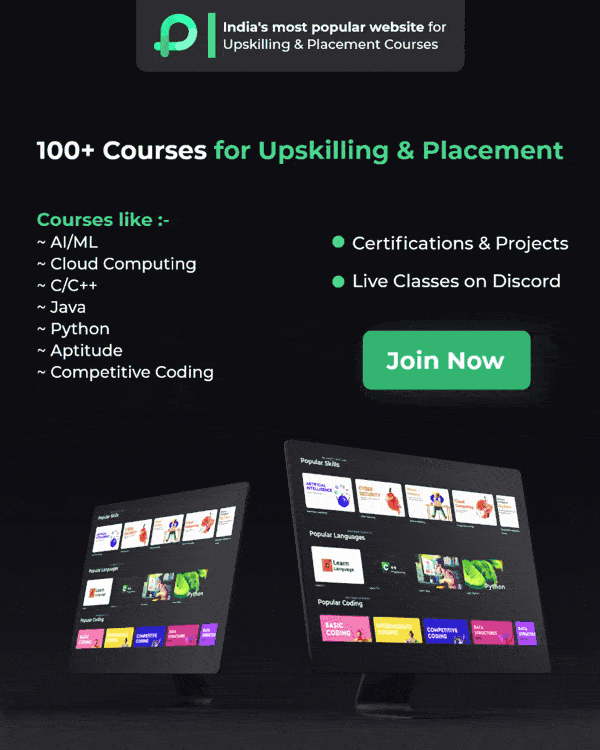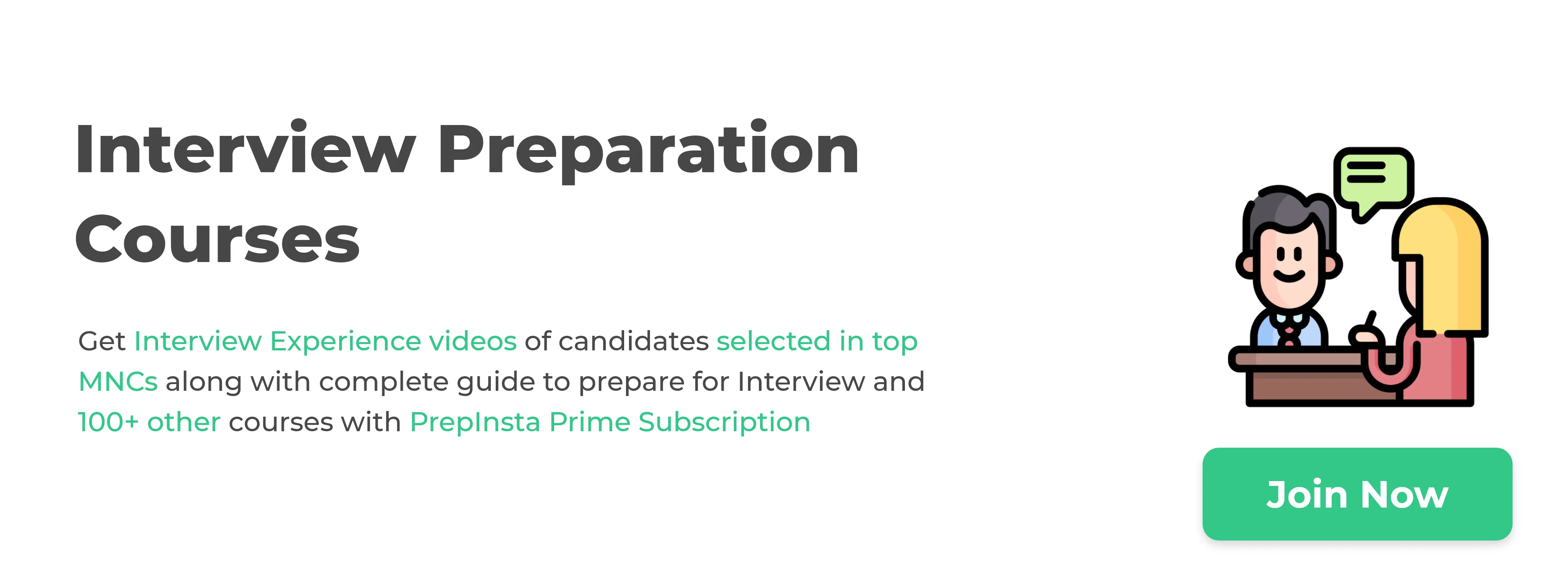NTT Data Interview Questions for Freshers
NTT Data Interview Questions for Freshers 2023
Find NTT Data Interview Questions for freshers asked in 2023.
Page Highlights:-

NTT Data Interview Process
NTT conducts interviews differently than other companies.
For A-grade colleges, NTT Data conducts one round of interview where they asks both technical and HR questions
For B-grade colleges, NTT Data conducts two interview rounds:
- Technical Interview
- HR Interview
NTT Data Technical Interview Questions for Non-IT Candidates
Question 1:- What are the benefits of a DataBase Management System?
Answer:-
- Controlling redundancy
- Unauthorized access is restricted.
- Multiple user interfaces are available.
- Backup and recovery services are available.
- Integrity limitations are enforced.
- Ascertain data consistency
- Accessibility is simple.
- The use of queries allows for simple data extraction and processing.
Question 2:- What is a Relational DataBase Management System (RDBMS)?
Answer:
- RDBMS is an acronym for Relational Database Management Systems.
- It is used to keep track of data records and table indices.
- RDBMS is a type of database management system that employs a structure to identify and access data about other pieces of data in the database.
- RDBMS is a database management system that allows you to update, insert, delete, manipulate, and administer a relational database with minimal effort.
- The SQL language is used by most RDBMS because it is simple to learn and widely utilized.
Question 3:- Define the term 'std’.
Answer:-
In C++, the default namespace standard is Std.
Question 4:- In C++, what is the full form of STL?
Question 5:- What are the most important differences between C++ and Java?
Java | C++ |
|---|---|
Java is platform-independent | C++ is platform-dependent. |
Except for the primitive variables, Java is a pure object-oriented language. | C++ does not use classes or objects to construct structured programs. |
The concept of pointers is absent in Java | Pointers are completely supported in C++ |
To write documentation for Java code, Java supports documentation comments (/**…*/). | Documentation comments are not supported in C++. |
Multiple inheritances in Java are not supported. | Multiple inheritances are supported in C++. |
Question 6:- Define object cloning?
Answer:-
Making a new object that looks like an existing thing. The functionalities of the cloned object will be carried across to the new object. The object is cloned using the clone() method.
Question 7:- What are some of the most common data-structure operations?
Answer:-
On every data structure, the following operations are routinely performed:
- Insertion: Insertion is the process of adding a data item.
- Deletion: The deletion of a data item
- Traversal: Accessing and/or writing all data objects via traversal
- Searching: Finding a specific data item through searching
- Sorting: Sorting is the process of putting data elements in a specific order.
Question 8:- What are local variables and global variables in Python?
Local Variables:
A local variable is any variable declared within a function. This variable exists only in local space, not in global space.
Global Variables:
Global variables are variables declared outside of a function or a global space. Any function in the program can access these variables.
Question 9:- Mention various data types in Python.
Answer:-
- Numbers.
- String.
- List.
- Tuple.
- Set.
- Dictionary.
Question 10:- In Python, how are classes created?
Also Check:-
NTT Data HR Interview Questions
Question 1:- Tell me about Yourself.
Answer:-
Good afternoon/morning. At XYZ College, I am _______, a third-year B.Tech EEE student. I am the current class representative and a Rotaract Club member at our college. Throughout my three years at college, I have actively engaged in a variety of college events, including our annual college fest and intra-college sports meet, while maintaining an 8.5 CGPA until my fifth semester. I also took a lot of classes to improve my talents and learn new stuff. I’m interested in this summer internship to get professional experience and establish a foundation for my future career.
Read more at: Tell me about Yourself.
Question 2:- What are your strengths and weaknesses?
Answer:-
It has been said that my criticisms can be harsh or severe at times. Giving constructive feedback might assist the other person in improving their abilities or performance. So, in recent times, I’ve been attempting to filter my criticism and use words that are encouraging and constructive rather than harsh or judgemental. This method has greatly aided me in gaining trust, and respect, and building stronger professional relationships.
Read more at: What are your strengths and weaknesses?
Question 3:- Have you led any team efficiently?
Answer:-
That is a great problem. Despite the fact that I have never managed or led individuals based on their performance reports, I am currently working as the lead technical on a project. In this role, I will be in charge of project productivity and removing any technology roadblocks that impede us from meeting our goals. Instead of meeting on a regular basis, I’ve established informal meetings as challenges arise to enable us to work through them as a team.
Read more at: Have you led any team efficiently?
Question 4:- Can you work night shifts?
Answer:-
Why not, right? If I am provided with enough safety and transportation, I will gladly work late shifts.
Read more at: Can you work night shifts?
Question 5:- What will you do if you are offered a job with a better package?
Answer:-
I would not change jobs if my current one offers me the best opportunities for advancement in the business. I’ll talk to my boss about the situation and ask about his thoughts on my professional development; if I perceive room for advancement in my current position, I’ll stay; otherwise, I’ll look for another job merely for the sake of promotion.
Read more at: What will you do if you are offered a job with a better package?
Also Check:-
NTT Data Technical Interview Questions for CS/IT Candidates
Question 1:- What exactly is merge sort, and how does it work?
Answer:-
Merge sort is a sorting algorithm that uses a divide and conquers approach to programming. It continues to divide the list into smaller sub-lists until each one contains only one entry. Then it sorts them and merges them until all sub-lists have been eaten. It has an O(n log n) run-time complexity and requires (n) auxiliary space.
Question 2:- What is the definition of denormalization?
Answer:-
- Denormalization is a technique for improving database speed by adding redundant data and removing complex data.
- Denormalization is a technique for database optimization.
- This method is used to avoid using difficult and expensive joins.
- Denormalization does not apply to the idea of refusing to normalize; rather, denormalization occurs after normalization.
- In this method, we will first eliminate redundancy from the data using the normalizing process, then add redundant data as needed using the denormalization process, allowing us to avoid costly joins.
Question 3:-What is a DLL (Doubly-Linked-List)? What applications does it have?
Answer:-
DLL (Doubly-Linked-List): This is a more complicated sort of linked list, in which each node contains two references:
- Connects to the next node in the sequence.
- Connects to the previous node in the sequence.
The data items can be traversed both ways with this structure (left to right and vice versa).
DLL has the following applications:
- A playlist featuring navigation options for the next and previous songs.
- The cache in your browser visited pages in BACK-FORWARD
- Undo and redo feature on platforms such as Word, Paint, and others, where you can go back to the previous page by reversing the node.
Question 4:- What exactly do you mean when you say "RTOS"?
Answer:
Real-Time Operating System:
- The Real-Time Operating System (RTOS) is an operating system designed for real-time applications or those in which data processing must be completed in a specific amount of time.
- It performs far better on jobs that must be completed quickly.
- It also handles the processes of execution, monitoring, and overall control.
- It also takes up less space in memory and uses fewer resources.
- Firm Real-Time
- Soft Real-Time
- Hard Real-Time
Question 5:- What are micro and macro kernels?
Answer:
MicroKernel:
A microkernel is a kernel that runs services that are essential to the operation of the operating system. All other operations are handled by the processor in this kernel.
MacroKernel:
Micro and monolithic kernels are combined in a macro kernel. All operating system code is contained in a single executable image in a monolithic kernel.
Question 6:- What exactly do you mean when you say Banker's algorithm?
Answer:-
Banker’s Algorithm:
To avoid deadlock, the Banker’s algorithm is utilized. It is a method for avoiding deadlock. In the banking system, it is known as the Banker’s algorithm, and it states that a bank should never allocate available funds in such a way that it cannot meet the needs of all of its clients.
Question 7:- What are several types of scheduling queues?
Answer:-
The scheduling queues are listed below: –
- Job Queue:- When a process is created, it is added to the job queue.
- Ready Queue:- The ready queue is a list of processes that are ready and waiting to execute in the main memory.
- Device Queue:- A device queue is a collection of processes waiting for a specific I/O device.
Question 8:- What are the various Artificial Intelligence (AI) development platforms?
Answer:-
The following are some different software platforms for AI development:
- Amazon AI services
- Tensorflow
- Infosys Nia
- Google AI services
- Microsoft Azure AI platform





